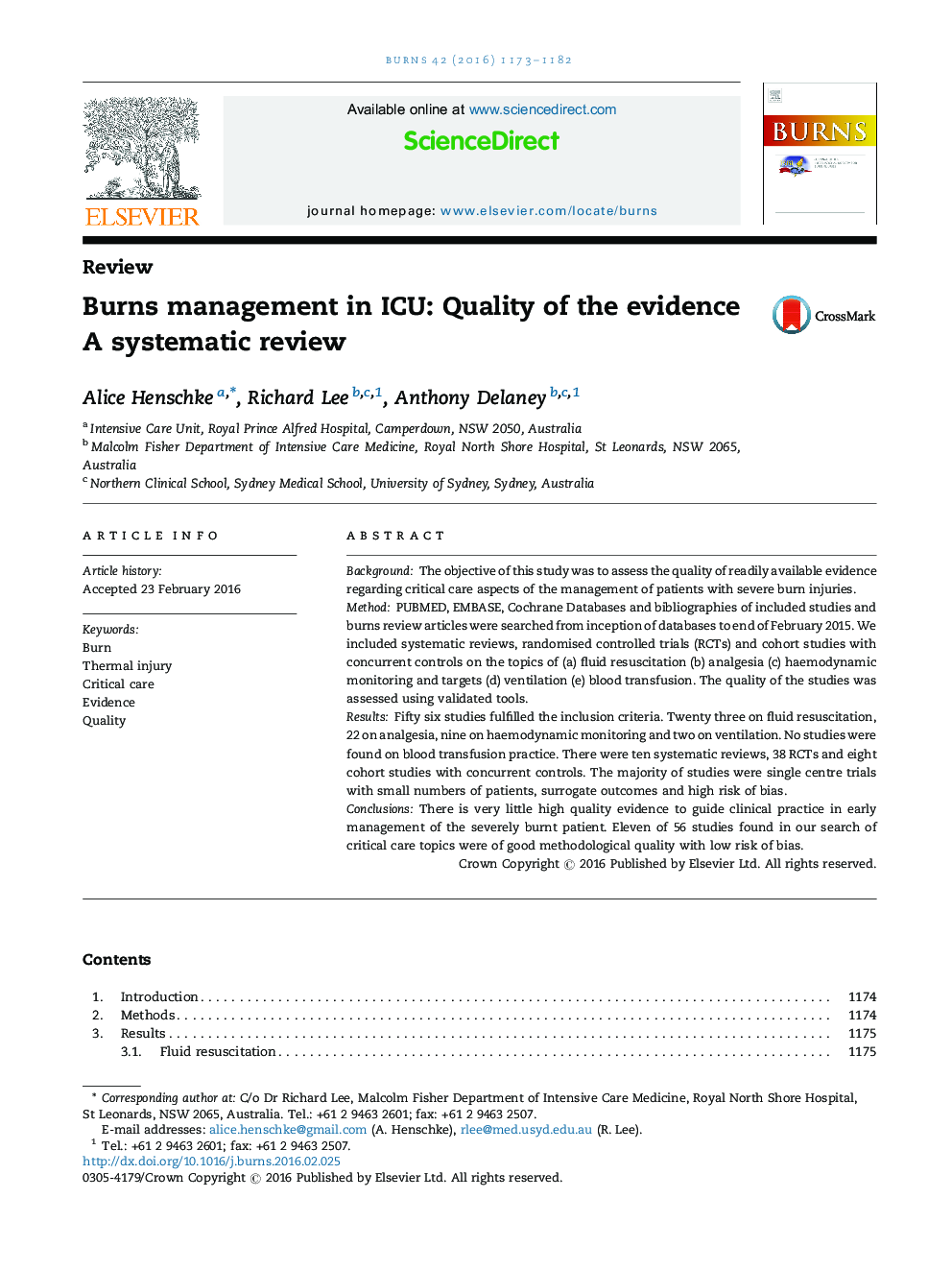| Article ID | Journal | Published Year | Pages | File Type |
|---|---|---|---|---|
| 5636321 | Burns | 2016 | 10 Pages |
â¢Little high quality evidence to guide clinical practice in acute burn care.â¢Number of meta-analyses, RCTs and controlled cohort studies is small.â¢Eleven of 56 are of acceptable methodological quality with low risk of bias.
BackgroundThe objective of this study was to assess the quality of readily available evidence regarding critical care aspects of the management of patients with severe burn injuries.MethodPUBMED, EMBASE, Cochrane Databases and bibliographies of included studies and burns review articles were searched from inception of databases to end of February 2015. We included systematic reviews, randomised controlled trials (RCTs) and cohort studies with concurrent controls on the topics of (a) fluid resuscitation (b) analgesia (c) haemodynamic monitoring and targets (d) ventilation (e) blood transfusion. The quality of the studies was assessed using validated tools.ResultsFifty six studies fulfilled the inclusion criteria. Twenty three on fluid resuscitation, 22 on analgesia, nine on haemodynamic monitoring and two on ventilation. No studies were found on blood transfusion practice. There were ten systematic reviews, 38 RCTs and eight cohort studies with concurrent controls. The majority of studies were single centre trials with small numbers of patients, surrogate outcomes and high risk of bias.ConclusionsThere is very little high quality evidence to guide clinical practice in early management of the severely burnt patient. Eleven of 56 studies found in our search of critical care topics were of good methodological quality with low risk of bias.
